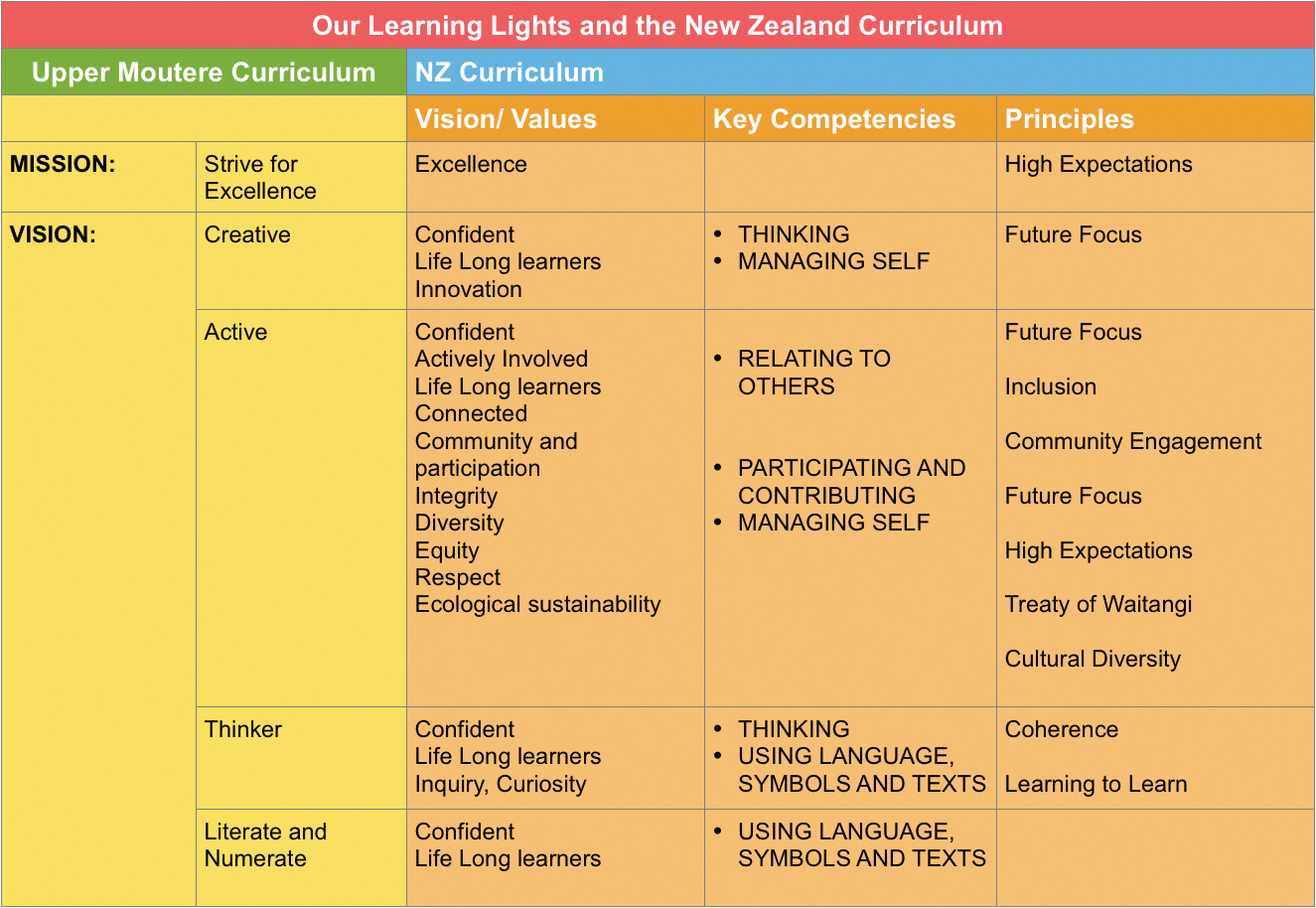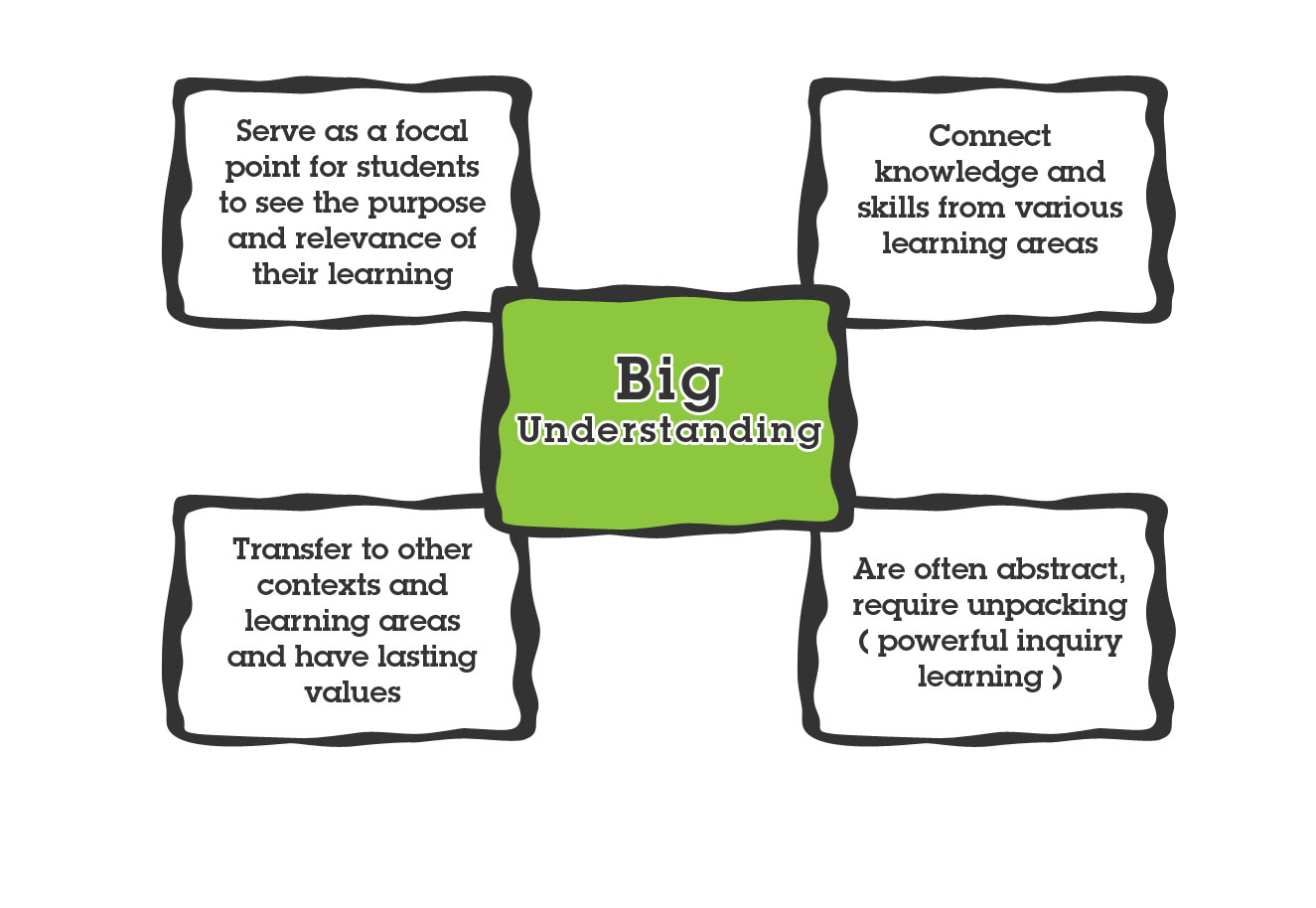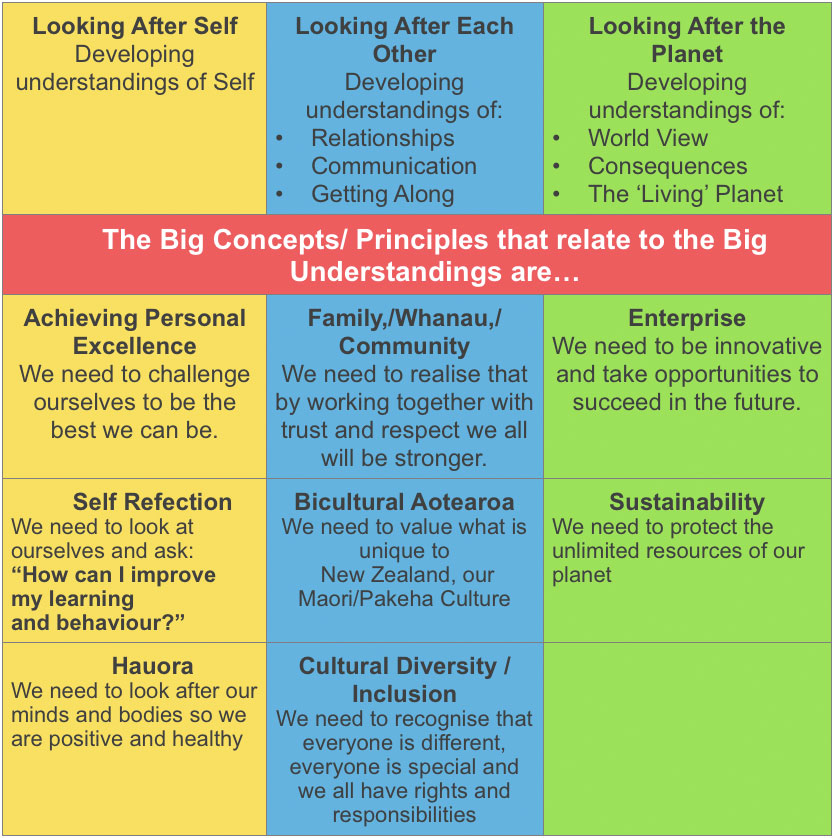The NZ Curriculum
The New Zealand Curriculum provides Upper Moutere School the flexibility to scope, design and shape our school curriculum to suit our students and help them achieve the national vision of becoming confident, connected, actively-involved, life-long learners.
Upper Moutere Schools Charter clearly states how Upper Moutere School will meet both the needs of our students and the requirements of the New Zealand Curriculum.
Our School Curriculum
The Upper Moutere School Curriculum places our students at the centre and is responsive to the needs of our students and community, to engage and develop lifelong learners.
- Our Mission: To Strive for Excellence
- Empowered by Our Learning Lights – Confident, Active, Creative, Literate, Numerate, Thinkers.
(our vision). - Making the Right Choices: Responsible, Respect, Pride
Our Learning Lights and Values reflect the New Zealand Curriculum
Big Understanding
We believe that the purpose of all teaching and learning at Upper Moutere School is…
To enhance students understanding of “the way the world works.”
Upper Moutere’s Integrated Curriculum is based on the Principles of the New Zealand Curriculum and the expectations of our community as these relate to the future of us as individuals, our society and our planet.
Therefore all our planning will evolve from and be based on the following three “Big Understandings.”
- Looking after Self
- Looking after Each-other
- Looking after the Planet
Students will have opportunities to develop confidence, pursue their personal interests and gain a sense of personal achievement as they become engaged and participate in a wide variety of planned experiences to increase their knowledge and awareness of themselves, their environment and their world and how they fit into it. (The “Big Understandings”)
We believe it is important that student’s see the relevance of what they are being taught; are empowered to make connections with their own experiences and knowledge; make the links within and across the learning areas; and engage with the rich learning opportunities that their local environment provides to gain a “Big Understanding” of the world in which they live
Big Understanding
Big Concepts
Underlying the “Big Understandings” are the “Big Concepts”. These are largely based on the Principles of the New Zealand Curriculum.
We expect that each of these “Big Concepts” will be planned for and covered over the time a child is at Upper Moutere School.
These “Big Concepts” will be developed through the Learning Areas and highlighted through planning using our Integrated Unit Plan.
As we develop these concepts with students, coverage will be recorded.
Big Concepts
Learning Areas
Literacy and Numeracy are priority learning areas and will delivered daily often with their own context of study. They may be integrated with the current Unit of Investigation when and where it is relevant/ natural to do so.
We believe it is not possible, or effective, to integrate all learning areas into a unit of Investigation. Teachers will identify a specific learning area focus from Social Science, Science, Health and Technology to base their Unit of Investigation.
| The Learning Areas
At Upper Moutere has its own Overview. |
Learning Area Essence Statements
To confidently… |
| English – Reading: |
|
| English – Writing:
|
|
| English – Oral/ Listening: |
|
| Mathematics and Statistics:
|
|
| Physical Education: |
|
| Health: |
|
| Social Science: |
|
| Science: |
|
| Technology: |
|
| The Arts: Visual, Music, Drama, Dance |
|
| Learning Languages: |
|






